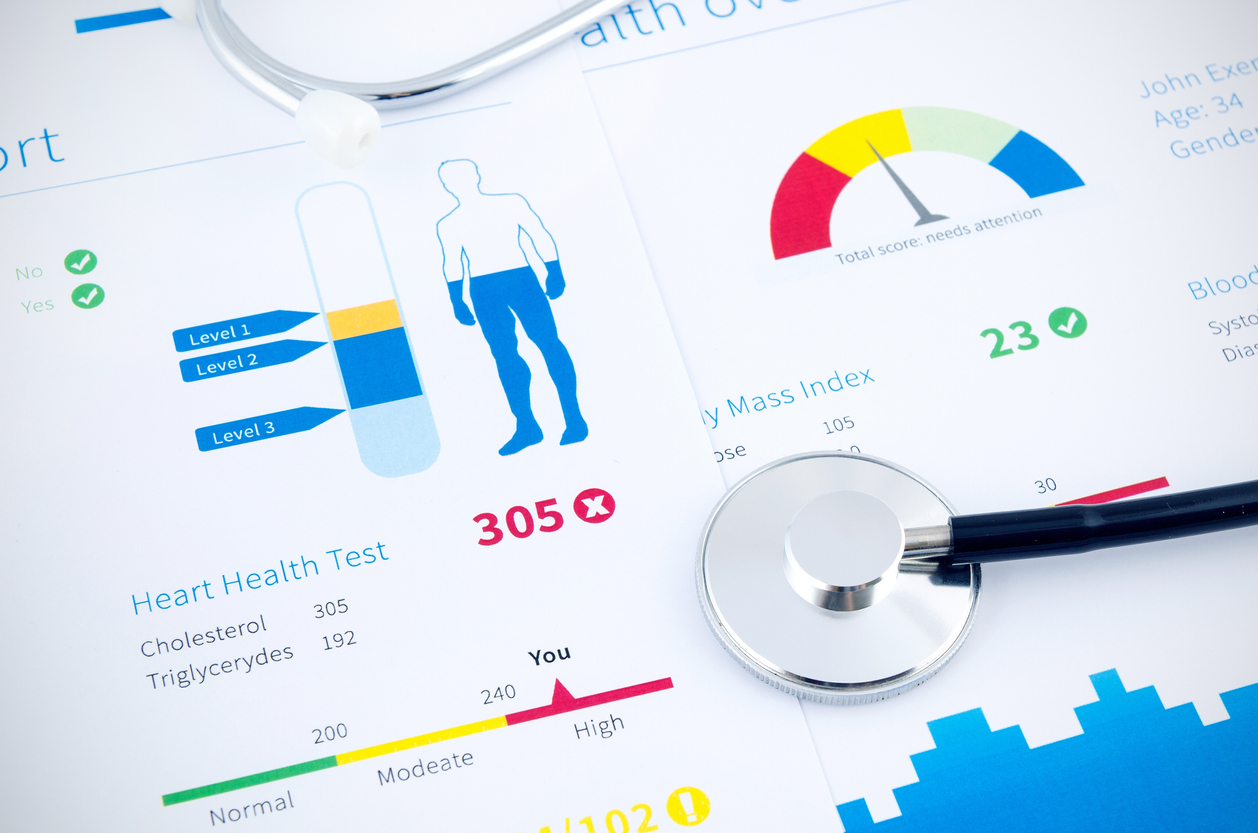The Importance of Your Health Numbers
Knowledge is power, especially when it comes to your health! Knowing and understanding your health numbers can help you measure where you stand and make any necessary changes on your health journey.
Getting regular biometric screenings is an important aspects of a healthy lifestyle. Aiming for healthy biometrics, which include weight, BMI, cholesterol, triglycerides, blood pressure, and glucose, is a realistic goal. These numbers can all be managed through healthy nutrition, physical activity, getting enough sleep and practicing stress management.
Know Your Numbers
When it comes to your health numbers, it is not only important to know what they mean but also where they are in relation to healthy ranges.
Weight and BMI
Body mass index (BMI) is often used to determine if someone is at a healthy weight. Since weight can affect so much of our health and well-being, it is important to follow a healthy, balanced diet, and be physically active. While BMI is the simplest way of understanding your body composition, it is only one tool. A formula used for accurate calculation for your height and weight, it does not consider muscle mass. Some people may have a higher BMI because of increased muscle mass rather than body fat, so waist measurement and/or body fat testing can be a better measure in those cases. An ideal waist measurement is ≤ 35 for women and ≤ 40 for men.
Cholesterol
Cholesterol is a waxy, fat-like substance made in the liver that travels through the bloodstream and is part of all the cells in the body. It is used to make cell membranes and some hormones. When you have extra bad cholesterol (LDL) in your blood, it builds up inside the walls of your heart’s arteries (blood vessels). It narrows arteries and reduces, or even stops, the blood flow. This can cause a heart attack, stroke, or other serious heart disease. “Good” cholesterol (HDL), on the other hand, protects against heart attacks.
- Desirable Total Cholesterol: <200
- Optimal HDL Cholesterol: ≥60
- Optimal LDL Cholesterol: <100
Triglycerides
Triglycerides are a type of fat in the blood stream. They come from fats eaten in foods or are made in the body from other energy sources, like refined carbohydrates. Just like cholesterol, too much can cause serious health issues. A normal triglyceride amount is <150. To calculate your total cholesterol, use the following formula:
Total cholesterol= LDL + HDL + (fasting triglycerides ÷ 5)
Blood Pressure
Blood pressure is the force of blood pushing against the walls of the arteries as it is pumped from the heart to various tissues and organs throughout the body. When it’s high, risk of heart disease, kidney disease, and stroke increases. A normal blood pressure range is: <120/80. The top number is systolic pressure, or the pressure measured while your heart beats. The top number is diastolic pressure, or the pressure measured between beats.
Glucose
Blood glucose, or blood sugar, is a type of sugar found in the blood. It can be naturally produced by the body and is found in the foods you eat. Glucose is your main source of energy, but it cannot be used without insulin. High levels of glucose in the blood can be a sign of diabetes. A1C testing can give a more comprehensive look at how you’re managing your glucose level by indication your average blood glucose for the past 3 months.
- Ideal Fasting: <100
- Ideal Non-Fasting: <140
To learn more about biometric screenings and knowing your numbers, visit our website!




